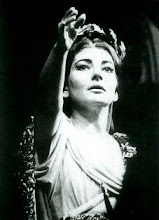
Por Franck Mcain
October 31, 2008
Election in the United States
Five days to go. What result is the election on Tuesday likely to have? All public opinion polls show Obama with a decisive lead over McCain. So the Democrats are likely to benefit from the wide-spread disgust in which Americans now hold the Bush-Cheney regime. The Congress did not do its constitutional duty to impeach those obviously guilty of failing to “preserve, protect and defend the Constitution of the United States” (Art. II) Now the American people will correct their tragic error in voting for Bush-Cheney in 2004.
The problem is that the Constitution of 1789 and its subsequent amendments do not clearly tie election of president and vice president to the outcome of popular voting.
The so-called Founding Fathers did not believe in the wisdom of the populace. They wanted a check on unqualified or dangerous individuals being selected. Alexander Hamilton stated hopefully in his essay Federalist Paper #68 that it was probable that the presidency would always be “filled by characters pre-eminent for ability and virtue.” But he distrusted the common horde to make a proper selection. His colleague James Madison (principal author of the constitution and 4th President) worried that “a unified majority faction” could take over the government and oppress the minority. Likely he was thinking of religious majorities. And he was not confident that representative bodies would restrain themselves in defense of the common good. The electoral college had two objectives: to prevent the people from making foolish selections; and to constrain majority control of the federal government by keeping the states involved in the election process. This confuses people who believe that the United States is a democracy based on majority rule. But the presidental selection is by indirect election.
In the electoral college a state has the same number of electors as it has senators and representatives. Each state has 2 senators and a representative for every 693,000 residents according to the last reapportionment. So because there are 100 senators and 435 members in the House of Representatives, plus 3 electors for the District of Columbia, the college has 538 members. The election on November 4 is to select the electors. Because the states determine how their electors are selected and how they are to act, the popular vote, as it is known, does not necessarily match the electoral college vote. Presidential campaigns in the United States concentrate on winning the popular vote in a combination of states that choose a majority of the electors, rather than campaigning to win the most votes nationally. Hence, there are the so-called “battleground” states, such as California with 55 electors, New York with 31, Texas with 34, Florida with 27, Illinois and Pennsylvania with 21 each, Ohio with 20, and Michigan with 17. In many ways there is not a national election but 51 separate ones ( in the 50 states plus the District of Columbia) to select the country’s president and vice president.
The voters choose the electors, whose names may or may not appear on a ballot under the name of the candidates for president depending on each state’s procedure. Oddly, there is no legal requirement for electors to vote according to the results of the popular vote. In some states political parties demand pledges from electors to vote according to the election results and some states levy fines on “faithless electors,” but in American history more than 99% of electors have voted for the winners in their states. In 2000 one elector from the District of Columbia abstained rather than vote for Gore who carried the district. Because the electors are selected in the process on November 4, we think of that as election day, but the electoral college will formally select the president and vice president on December 15. To win the candidate must get a majority or 270 votes. If no one has a majority, the House of Representatives chooses the president and the Senate chooses the vice president. It would seem that winning the popular vote should secure the electoral vote as well, but this did not happen in 1876, 1888 and 2000
The situation is made more complicated by the fact that Maine and Nebraska do not give the winner all of their elector votes but rather a percentage based on the votes cast for each candidate. The other 48 states have a winner take all tradition. It is worrisome that the Republican Party has tried to convince California voters to change their state’s rule to give each candidate a portion of its electoral votes according to the percentage of the popular vote. The republicans seem more interested in getting power by any means rather than protecting American democracy. Perhaps they became overly fascinated by the intrigues of Russian communism in the long decades of the Cold War?
My own view is that the Electoral College is not democratic, is inherently cumbursome, and is unhealthy for the American political system. Al Gore won the popular vote in 2000, but Republican shenanigans, to use a good Irish word, created a situation that led to a challenge to the decision of the Florida Supreme Court in Gore’s favor that was decided by a 5 to 4 partisan decision in the U.S. Supreme Court that installed George W. Bush in the White House. The Republican attitude was best expressed by Justice Anthony Scalia when he said that there was no right to vote in the constitution. This time, hopefully, the voice of the people will be too loud to be ignored.
Frank D. McCann
University of New Hampshire
October 31, 2008
Election in the United States
Five days to go. What result is the election on Tuesday likely to have? All public opinion polls show Obama with a decisive lead over McCain. So the Democrats are likely to benefit from the wide-spread disgust in which Americans now hold the Bush-Cheney regime. The Congress did not do its constitutional duty to impeach those obviously guilty of failing to “preserve, protect and defend the Constitution of the United States” (Art. II) Now the American people will correct their tragic error in voting for Bush-Cheney in 2004.
The problem is that the Constitution of 1789 and its subsequent amendments do not clearly tie election of president and vice president to the outcome of popular voting.
The so-called Founding Fathers did not believe in the wisdom of the populace. They wanted a check on unqualified or dangerous individuals being selected. Alexander Hamilton stated hopefully in his essay Federalist Paper #68 that it was probable that the presidency would always be “filled by characters pre-eminent for ability and virtue.” But he distrusted the common horde to make a proper selection. His colleague James Madison (principal author of the constitution and 4th President) worried that “a unified majority faction” could take over the government and oppress the minority. Likely he was thinking of religious majorities. And he was not confident that representative bodies would restrain themselves in defense of the common good. The electoral college had two objectives: to prevent the people from making foolish selections; and to constrain majority control of the federal government by keeping the states involved in the election process. This confuses people who believe that the United States is a democracy based on majority rule. But the presidental selection is by indirect election.
In the electoral college a state has the same number of electors as it has senators and representatives. Each state has 2 senators and a representative for every 693,000 residents according to the last reapportionment. So because there are 100 senators and 435 members in the House of Representatives, plus 3 electors for the District of Columbia, the college has 538 members. The election on November 4 is to select the electors. Because the states determine how their electors are selected and how they are to act, the popular vote, as it is known, does not necessarily match the electoral college vote. Presidential campaigns in the United States concentrate on winning the popular vote in a combination of states that choose a majority of the electors, rather than campaigning to win the most votes nationally. Hence, there are the so-called “battleground” states, such as California with 55 electors, New York with 31, Texas with 34, Florida with 27, Illinois and Pennsylvania with 21 each, Ohio with 20, and Michigan with 17. In many ways there is not a national election but 51 separate ones ( in the 50 states plus the District of Columbia) to select the country’s president and vice president.
The voters choose the electors, whose names may or may not appear on a ballot under the name of the candidates for president depending on each state’s procedure. Oddly, there is no legal requirement for electors to vote according to the results of the popular vote. In some states political parties demand pledges from electors to vote according to the election results and some states levy fines on “faithless electors,” but in American history more than 99% of electors have voted for the winners in their states. In 2000 one elector from the District of Columbia abstained rather than vote for Gore who carried the district. Because the electors are selected in the process on November 4, we think of that as election day, but the electoral college will formally select the president and vice president on December 15. To win the candidate must get a majority or 270 votes. If no one has a majority, the House of Representatives chooses the president and the Senate chooses the vice president. It would seem that winning the popular vote should secure the electoral vote as well, but this did not happen in 1876, 1888 and 2000
The situation is made more complicated by the fact that Maine and Nebraska do not give the winner all of their elector votes but rather a percentage based on the votes cast for each candidate. The other 48 states have a winner take all tradition. It is worrisome that the Republican Party has tried to convince California voters to change their state’s rule to give each candidate a portion of its electoral votes according to the percentage of the popular vote. The republicans seem more interested in getting power by any means rather than protecting American democracy. Perhaps they became overly fascinated by the intrigues of Russian communism in the long decades of the Cold War?
My own view is that the Electoral College is not democratic, is inherently cumbursome, and is unhealthy for the American political system. Al Gore won the popular vote in 2000, but Republican shenanigans, to use a good Irish word, created a situation that led to a challenge to the decision of the Florida Supreme Court in Gore’s favor that was decided by a 5 to 4 partisan decision in the U.S. Supreme Court that installed George W. Bush in the White House. The Republican attitude was best expressed by Justice Anthony Scalia when he said that there was no right to vote in the constitution. This time, hopefully, the voice of the people will be too loud to be ignored.
Frank D. McCann
University of New Hampshire





































































Nenhum comentário:
Postar um comentário